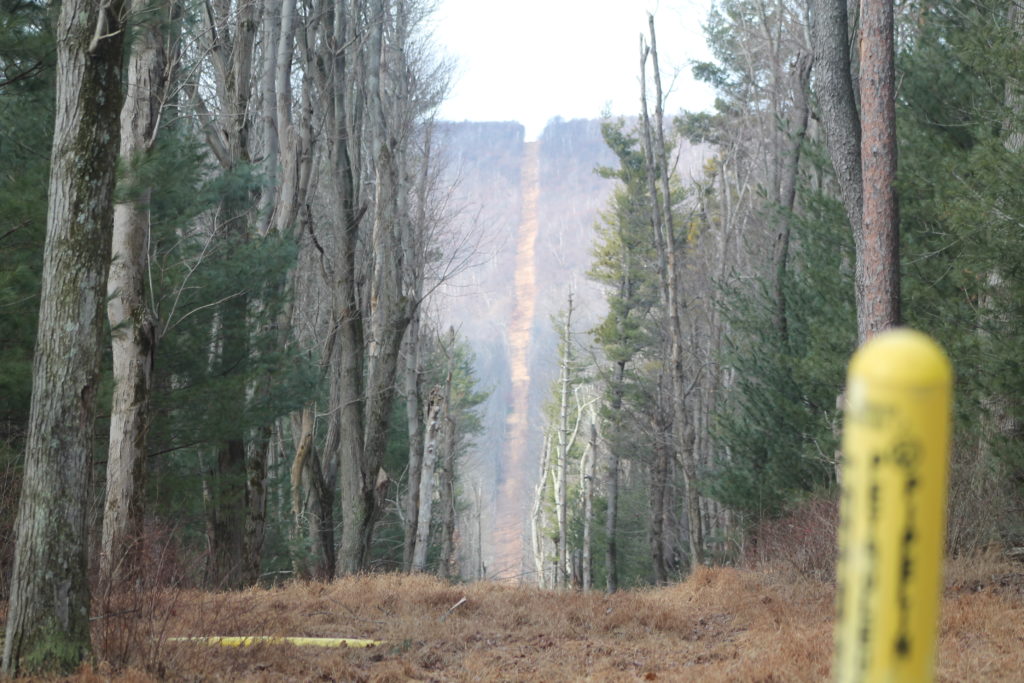Clean Air Council and Partners Reach Settlement on Mariner East 2 Appeal: Here’s How Residents and the Environment Will Be Protected

In a victory for community safety and environmental protection, Clean Air Council, Delaware Riverkeeper Network, and Mountain Watershed Association reached a settlement agreement on Wednesday with the Pennsylvania Department of Environmental Protection (DEP) to resolve a February 2017 appeal of construction-related permits for Sunoco Pipeline L.P.’s (Sunoco) Mariner East 2 pipeline project that has been pending before the Environmental Hearing Board (EHB) for nearly a year and a half.
Mariner East 2 consists of two large-diameter pipelines that would carry highly volatile hazardous liquids at very high pressure 350 miles across Pennsylvania to be shipped for sale overseas. The environmental organizations reached an agreement with DEP to create protective policies to address public health and the environmental impacts from pipeline projects. The policies will lead to increased transparency and protections designed to prevent a repeat of disastrous construction like that of Sunoco’s Mariner East pipelines.
Specifically, the agreement forges a path for DEP to develop a number of policies or documents related to the following aspects of future pipeline projects:
- Methodology and considerations for completing an Alternatives Analysis for Erosion and Sediment permits
- A list of projects required to apply for individual permits as opposed to streamlined general permits
- The design and execution of horizontal directional drilling (HDDs)
- HDD Inadvertent Return Assessment, Preparedness, Prevention and Contingency Plans
- Training plans for construction workers, supervisors and inspectors
- Landowner communications
- Noninvasive species in construction, erosion and sediment control, and restoration plantings
As part of the policy-making process, DEP will establish a new stakeholder group, including environmental organizations, to review and comment on the above draft policy improvements.
Starting this fall, Clean Air Council and its partners will designate a representative to participate in a workgroup to develop a new system for prioritizing the review of erosion and sediment control general permit applications. The new prioritization system will be designed to incentivize environmentally sound construction techniques.
DEP will also make non-privileged, non-confidential pipeline permit application materials and supporting documents available online for future project, including any technical deficiency letters and responses as well as DEP decision documents as it did for the Mariner East 2 permits.
Read the full settlement agreement: Final Stipulation of Settlement.
Permit Appeal Background:
Within 6 months of Clean Air Council’s appeal, the EHB determined that Sunoco’s permits were deficient regarding horizontal directional drilling (HDD) activity, and it temporarily shut down all permitted activity at every HDD site across the Commonwealth. This shutdown ultimately resulted in the parties reaching a partial agreement last summer that resulted in significant changes to Sunoco’s permits, which included providing notification to landowners and properly identifying private water supplies potentially vulnerable to damage from Sunoco’s activities.
In April 2018, after a slew of legal filings, briefs, and hearings before two different courts, the Environmental Hearing Board issued an agreed-upon order implementing stronger protocols for responding to and preventing drilling fluid spills on the Mariner East pipelines. Clean Air Council, Delaware Riverkeeper Network, and Mountain Watershed Association later took Sunoco and the Pennsylvania Department of Environmental Protection (DEP) to court for violating a previously agreed-upon version of the protocols, and then quietly modifying those protocols without the input of the Council, other organizations, or the court.
As a result of the new protocols, called the HDD plan, communities along the Mariner East pipelines are better protected and informed. The new HDD plan, which now applies to all drilling methods that could result in drilling fluid spills, is comprehensive, strongly protective, and scientifically rigorous. According to the new plan, professional geologists must be involved in determining whether it is safe to proceed with drilling after a spill. The new HDD plan also includes groundwater protections that have been spelled out in detail so there can be no ambiguity in how they are applied and improved requirements for notifying DEP and the public about drilling incidents.
Nonetheless, when construction of the Mariner East 2 project resumed, sinkholes opened up in residents’ backyards, families were forced to leave their homes, and Sunoco’s HDD practices resulted in over 180 separate spills of drilling fluid – which is classified as an industrial waste and pollutant – into Pennsylvania land and waters.

